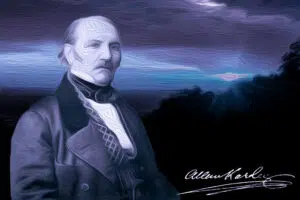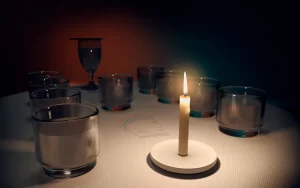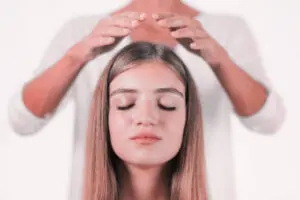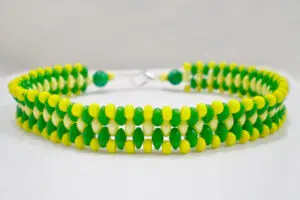Oyekun Okana: Meaning, tips, sayings, patakies and more of this Ifa sign

Oyekun Okana or Oyekun Pelekan, is the combination between the Ojú Odù Oyeku and Okanran, it is Odu number 38 of the Ifa genealogy, through the energy of this Odu it was that Orisha Aje came to the World. This sign speaks that bad forms and constant discussions delay us and damage our astral.
The Odu Oyekun Okana speaks of the need to do ebo for long life and good health. Ifá advises this person to offer the sacrifice and to be careful with women for the time being; since women will betray him. He will not have bad friends.
Other names of the Odu Oyekun Okana:
- Oyekun Folo Kana.
- Oyekun Peleka.
In the sign Oyekun Okana is born:
- Born: Orisha Aye, who lives next door to Oshún.
- The investment of humans in the earth by the curse of Aye.
- The religious preparation of painting.
- The spirit.
- Here: Olofin, Egun, woman (obini) and Oshún speak.
- Talk about foot sores.
- You have to respect the elderly.
- You can't have anything dead in the house.
- Talk about effeminates and lesbians.
It may interest you: All about the Odu of Ifa Oyekun Meyi
Meaning of the sign Oyekun Okana (Peleka):
When this Odu comes I will go: The end of the cycle leads to new opportunities.
When Oyekun Peleka comes Osobo: The end of the cycle leads to unnecessary isolation.
This Odu speaks of the potential for physical shutdown and the possibility of financial loss.
For this Ifá, the person is too intransigent, he does not listen to advice, so he will be in danger of going to prison or suffering other adversities because of his little knowledge or understanding about what is good and what is bad, because he thinks that how you live is correct.
Here the person is considered imprisoned or imprisoned.
When the Awó sees this Ifá, his son must be seven days without going out on the street because they can kill him.
Olofin, Egun, woman (obini) and Oshún speak in this Ifá.
Here a small güiro is lined in the shape of a maraca (asheré), with snails, to touch Oshún every day and ask him, and the good is sure Maferefun Oshún. Egun is given the blood of two pigeons.
He is the son of Obatala and must establish it for his good.
Oyekun Okana talks about sores on the feet, because they suffer from blood circulation disorders and if it is not taken care of, they can suffer from something bad.
Herbs (Ewe) from Oyekun Peleka (Okana):
Jobo, Cayenne, Chicken Leg, Aroma, Jara Jara.
Sayings of Oyekun Okana (Oyekun Pelekan):
- Luck has arrived, you have to take advantage of it.
- The life of the dead is in the memory of Ifá.
- He who does not listen to advice does not grow old.
- Aye's curse touches humanity.
- He who does not take care of what he has, stays to ask.
Recommendations of Oyekun Okana (Oyekun Peleka):
- This Ifá talks about diseases in the blood, stomach, kidney problems, sexual and circulatory diseases. Here you can not drink alcoholic beverages of any kind, so that you do not have a bad outcome of health or justice.
- Beware of attempting against his life, he will not succeed, and then he will suffer the physical consequences of that reckless action.
- Here, mass for the Church will be given to deceased relatives.
- This Ifá orders a periodic medical check-up to be done to prevent health problems.
- He does not eat anything or drink what they give him, that he does not know where it comes from.
- For women: her lover has told her one thing about her husband and it is a lie. She had a lover who gave her a lot of money but now he doesn't give her anything. He has not married and must receive the Ikofafun so that he can marry or be firm in his marital relationships.
- At Oyekun Okana, Orisha Aye is received. This Orisha lives next to Oshún and eats the same, and it is so that the person can live in a stable marriage.
- Here was born the investment of beings on Earth by the curse of Aye, because the curse made children effeminate and lesbians.
- When this Ifá is seen in this way with a boy or girl, the Ebó Paraldo and the indicated ceremony are performed (in the works of the Odu).
- Here, to get rid of the tongues of their enemies, since their things, whether good, regular or bad, others like, Ebo is made with ram and 2 roosters to Shango.
- Yemajá is also given a ram, so that she may have all the strength that she possesses and be free from all that is bad.
- Here the good-hearted man was ruined and had to do Ebo with: 1 empty sack, rooster, mame pigeon, take it to a room and happiness came.
The Oyekun Okana sign speaks:
- We must respect the elderly, both religious and family, and listen to the advice they give us.
- For this Ifá, he betrays himself without thinking. Here the woman wants to go with another man. Hookah is put on it with tobacco cuttings.
- This Ifá is Kaferefun Osanyin, Obatalá, Oduduwa, Olokun, Eshu and Adifafun Aye.
- Here one comes to know of one who is not a legitimate son of his wife.
- Because of the Oyekun Okana sign, you have to get rid of all the dead things that you have in the house, because death walks around your house and wants to dance with you.That is why creatures scream a lot at night and it is because they see death hanging around.
- Here in Oyekun Okana, your affairs are behind schedule, do Ebo to get you through.
- Fights with your spouse should be avoided, because to clarify situations you do not have to fight, because they can be disrespectful and you can raise your hand.
- His enemies cast witchcraft to destroy the house. A woman has done him a job that has hurt him a lot.
- Do not argue with anyone, as this slows you down and can lead to problems.
It may interest you: Ifa Okana Yekun sign
Says Ifa odu Oyekun Okana
That you are sick with the blood and have to take grass to heal. If he is a man, he has venereal disease. And if you are a woman: don't drink and be careful where you are working; death is after you. You are fighting with your husband and he has to come with another woman. You want to kill yourself or go with another man. A woman is doing witchcraft or harm to him. You have sores on your feet. You have stored something that belongs to a deceased, get rid of it. There is someone who is watching over you when you come in and go out. And there is also a little boy who screams at night, because he sees dead people in the house. Everything has been turned upside down for you. You do not respect the elderly. You have lost three game lots. You are seeing shade in the house. You have a drink, the one you like best: leave it. Beware of being interested in a close friend. You take a good look, something is not going to happen to you and then weigh you down. In your house there is a pregnant person, whose belly does not belong to her legitimate husband. Be careful not to find one inside the house; the one who is collected is the father of the child. You have a thing buried in the door
from home or on the street.
If someone tries to argue with you, leave it and go. You suffer from blood circulation, especially in the legs, and you may suffer from something bad.-Be careful, do not threaten your life, you will not achieve it, and then you will suffer the physical consequences of that reckless action. Check with the doctor for your health, which is broken. For the woman to be able to marry and maintain marital stability, she must receive Orúnmila. You must make Santo for health.
Prayer of the Odu Oyekun Okana:
OYEKU FOLOKO KANA IDI FORISHE AWO MOLOGU BABA
LEWO AUN MODUA NI EIFE KUAKADE KARI MIO LERI META
ATONI BABARE LAKA DANOMUSHI YUDEDE JAWA LOWUA
KOKURIRE OLEDAO OBINI LOKUN LOGUN ORUBO.
Suyere of the Odu Oyekun Foloko Kana:
AWA BAYERE OBINI MAYERE
AWA BAYERE OBINI MAYE OBINI OBOÑU
Oyekun Peleka's Ebbo:
Work: With Jara-Jara herb heals impotence.
Ebó Paraldo: 2 roosters, 1 hen, 1 chicken, heads of three fresh fish, a crucifix, a gourd with seawater and two dolls, one female and one male, made of aroma stick, jobo grass, eggshell shell chicken, many grains, everything that is eaten, ritual fabrics, hutía and smoked fish, corojo butter, candles, brandy, coconut, cocoa butter, ash or a naború, 3 ekó ritual herbs, a lot of money.
Jutía and smoked fish and roasted corn are added to each piece of ekó. Omiero is prepared from the ritual herbs: Carob, Dead Espanta, Purple Basil, Pacific Sea, Prodigious, Itamorreal, Yagruma and Paraíso, to bathe the interested party. Afterwards, he takes some of the herbs from the bath,
they squeeze and are thrown into the Ebó.
In the case of a girl: After the Ebó, one of the hens opens on her head so that the blood runs through her body in front of her, so that it runs through her modest parts; the body of the hen is left on his head for a while and one prays well. Then the open chicken passes through his belly
down. The legs of the hen's body are cut off, in order to fill it with them, the head and the materials of the Ebó. If it is a child: His father stops him naked, putting Eshu behind him, and
He gives a small chicken to his head, so that the blood runs from his head down his back, passes over his buttocks and falls on Eshu. The body of the chicken is opened and it is put on its head for a while.
Then the legs are cut off, which together with the head and a little of the Ebó ingredients, are
stuff that little chicken. The feathers of that chicken are thrown to Eshu until they cover it.
The crucifix, in both cases, goes inside the Ebó package. If the letter came osobo, 3 or 5 Piñón Botija seeds are added (he wonders). The roosters for Olokun and the chicken for Paraldo.
Ebó: A male or female doll, depending on the case, a yucca crab, basil grass, a güira stick the size of the person, 9 bells, three sticks of white cloth, coconut, candle, jutía and smoked fish, toasted corn , corojo butter, a lot of money.
The güira bush is lined with white cloth; the 9 bells are put on him and he stands at the head of the bed. A glass of water and a branch of basil are placed on the foot of the bed and at 6 in the afternoon it is said:
"Spirit that you persecute me, go where Olofin has destined you."
Oyekun Okana for women:
Receive the Ikofafun to have a marriage and be firm in your marital relationships. He is given a loaded and bead-lined Osanyin güiro.
You can read: The signs or Odu of Ifa
Patakie of the sign Oyekun Peleka (Oyekun Okana):
The embarrassment cost him his life.
History.
On this path, there was a couple that had several children and among them there was a girl who was when she reached 15 years of age. This girl had several suitors and one of them was the one she liked and was in love with.
Several times she spoke with her parents to give her boyfriend permission to enter the house, where they always refused, because they understood that he was too young to have a boyfriend.
The mother, seeing the attitude that her daughter had and that it had changed, went to look at herself with Orúnmila, who made her Osode and saw this Ifá (Oyekun Okana) and Ebo marked her.
Where there was no time to do it, because as she was in love with the young man, she had given herself to him and had come out in his state, and as a result of the embarrassment, she caught fire and killed herself.
Note: He who does not take care of what he has, stays to ask.
Oyekun Okana Ifa Traditional
ÒYÈKÚ ÒKÀNRÀN
Awawa
Awawa
Awàwà n wawà
Ota pété pèté ni wón fi n wawà nifè
A day fún Òrúnmìlà
Ifá or gberan ahùwo wànwà lówó akápòo rè
Òrúnmìlà ló ní kí Akápò òun ó tojú were abìwo wànwà
Kí ayée rè or le dáa
Ó fi bokè ìpòrí è
Ni nnkan è bá n dáa
Ayé bá ye é
Okàan rè balè
kó nísinmi
O ni Awáwa
Awàwà n wawà
Ota pété pètè pèté ni won fí n wawà nifè
A day fún Òrúnmìlà
Ifá or gberan ahùwo wànwà lówó akápòo rè
They were abìwo wànwà tífá gbà lówó Akápò rè
Ifá fi tún ti Akápòo rè se ni.
Ifá in Oyekun Okana, you want this person to be well. Ifá accepts an animal with large horns from him so that he can amend his life; Your enemies will never be able to overwhelm you. And they won't be able to destroy it.
Awawa
Awawa
Awàwà n wawà
Ota pété pèté ni wón fi n wawà nifè
They made divination for Òrúnmìlà
Ifá accepts a horned animal from her Akápò
Òrúnmìlà had told his Akápò to prepare a horned wild animal
So that his life (Akápò) would be better
Akápò then prepared the animal
He sacrificed him to Ifá
Then Akápò's things got better
Life pleased him
He had peace of mind
And I was also calm and happy
He said to Awáwa
Awawa
Awawa
Awàwà n wawà
Ota pété pèté ni wón fi n wawà nifè
They made divination for Òrúnmìlà
Ifa accepts a horned animal from its Akápò
The horned wild animal that Ifá accepted from her Akápò
Ifá used it to amend the life of his Akápò.
You can also Read:









